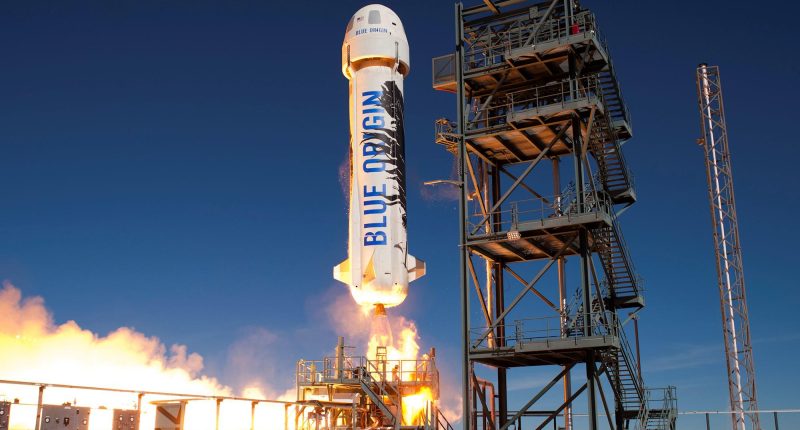JEFF Bezos’ first Blue Origin rocket launch in over 15 months was cancelled today due to a ground system issue.
The launch was scrubbed 15 minutes after the initial T-0 time, having initially been pushed back due to cold temperatures at the launch site.
The Blue Origin team are currently troubleshooting the issue, according to a statement on X (formerly Twitter).
“We’ll provide a new launch target for this week soon,” the team added.
On board the New Shepherd rocket was 33 science and research payloads, alongside 38,000 postcards from students in Blue Origin’s Club for the Future initiative, which promotes STEM subjects.
If all had gone ahead, the December 18 mission from Blue Origin’s West Texas launch site would have been New Shepherd’s 24th flight and 13th payload mission.
READ MORE ON SPACE
It was intended to be Blue Origin’s big debut after a fiery mid-air explosion shortly after take-off in September 2022.
The company’s New Shepherd rocket had previously been ferrying high-flying tourists to the edge of space between July 2021 and August 2022.
This includes Star Trek actor William Shatner and Bezos himself.
Blue Origin racked up six flights before it’s hiatus.
Most read in Tech
However, all trips were firmly paused when an uncrewed New Shepherd suffered an anomaly at 27,800 feet above the company’s site in Texas, causing it to suddenly explode.
A six-month investigation headed by Blue Origin, and overseen by the US’ aviation watchdog, found that a nozzle on the rocket’s engine suffered a “structural fatigue failure”.
The Amazon-founder’s rocket company has since redesigned the rocket engine’s combustion chamber and adjusted some operating parameters.
The NS-24 mission received approval from the Federal Aviation Administration (FAA) to go ahead.
Blue Origin’s space tourism programme is one of the most elite experiences available and costs more than $25million (£20million).
But it’s not yet clear when tourists will be able to return to Blue Origin for trips to the Karman line.
Find out more about science
Want to know more about the weird and wonderful world of science? From the Moon to the human body, we have you covered…









